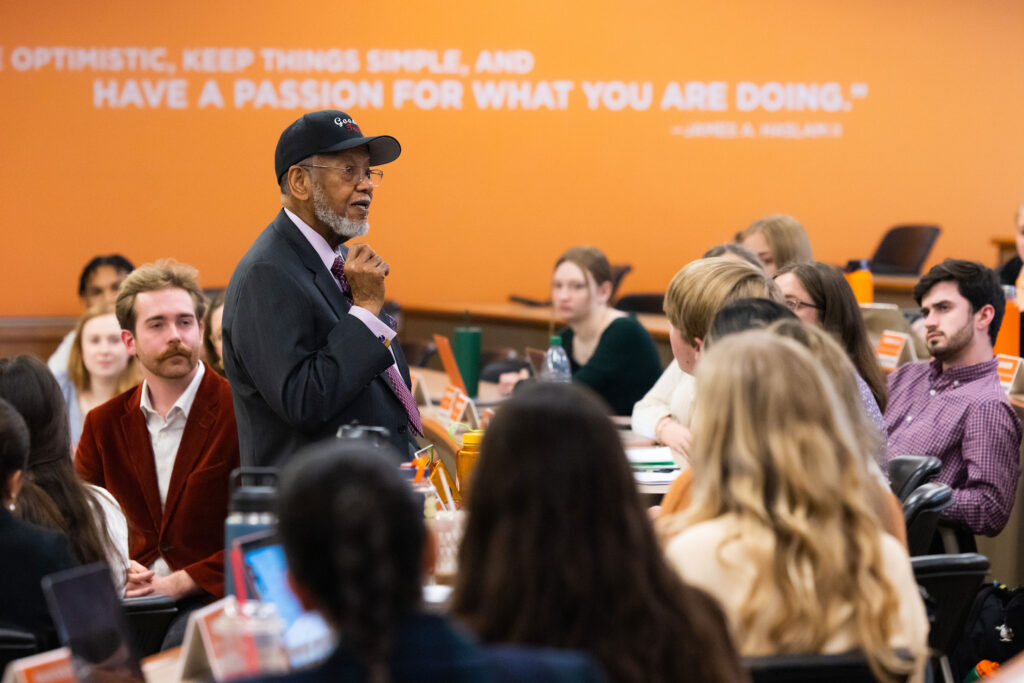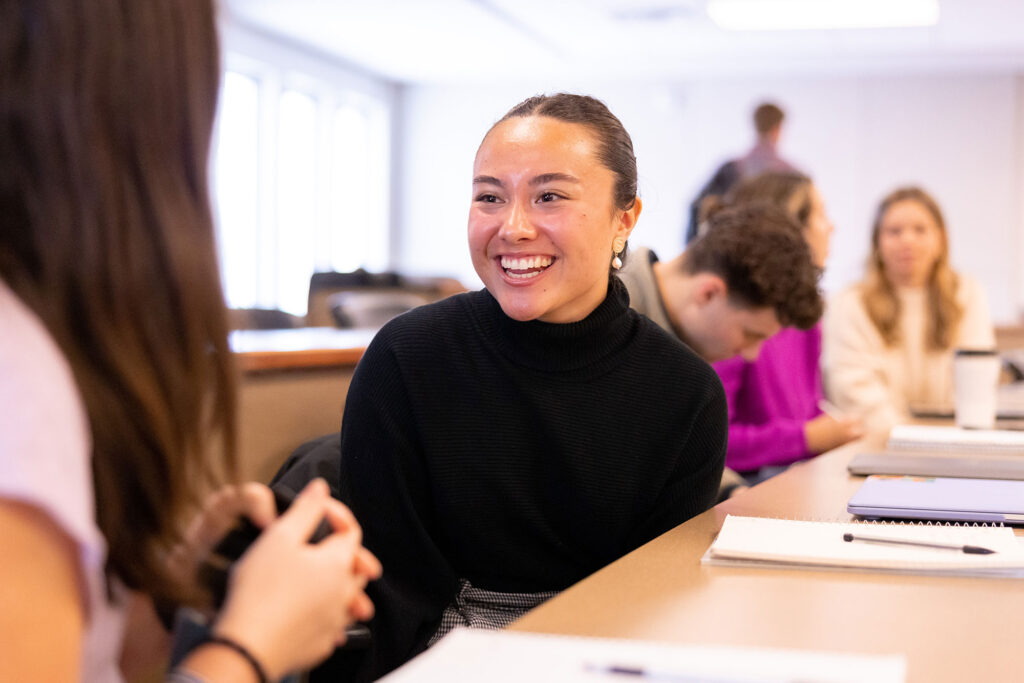Area of study
Law & justice programs
Whether you’re becoming interested in law and government or ready to commit to law school, UT’s law and justice programs will teach you how to become an advocate, resolve legal problems, and be a part of the solution when it comes to public policy challenges. UT offers a number of dual-degree programs, and through our centers and institutes, you can get real-world experience in areas including family law mediation, national and international security, and American politics. Our Legal Clinic has a longstanding national reputation and is ranked among the top legal clinical education programs.


Your future as a professional
With a degree from UT in a law and justice program, you’ll have abundant career opportunities.
What you can do with a degree in a law and justice program:
Law & justice careers
- Civil rights law
- Communications
- Community outreach
- Ethics
- Human rights
- International law
- Law reform
- Legislative compliance
- Mergers and acquisitions
- Mission work and ministries
- Private practice
- Public defense
- Public policy
- Public relations
- Social entrepreneurship
- Sports teams
- Tax law
Potential employers
- Federal, state, and local government
- Foundations
- Large corporations
- Law firms
- Nonprofit and public interest organizations
- Research organizations and think tanks
- Unions
- United Nations
- World Bank
Where you’ll study
UT’s law and justice programs span across four colleges and a degree-granting school. The Baker School of Public Policy and Public Affairs offers programs like American civics and public administration. Programs such as philosophy, political science, and public policy are housed within the College of Arts and Sciences. Law programs with concentrations like social work, business administration, and advocacy and dispute resolution are housed within the College of Law. In the College of Social Work, students can pursue a forensic social work certificate and a dual degree with law. Students in the Herbert College of Agriculture, specifically studying agricultural leadership, education, and communications, often go on to work in law and government.


I’ve worked at the Baker Center [now the Baker School] for the past three years and we are the only public policy center in the state. I don’t know where else I could have gotten a better education.
Juliet
(’23)
Political Science, Communication
Find programs in this Area of Study
Explore other Areas of Study
- Agriculture and natural resources
- Architecture and design
- Art and performance
- Business
- Communication and information sciences
- Education
- Engineering, math, and computers
- English and literature
- Health, wellness, and human sciences
- Languages, cultures, and humanities
- Law and justice
- Science
- Social science and social work
- Veterinary


